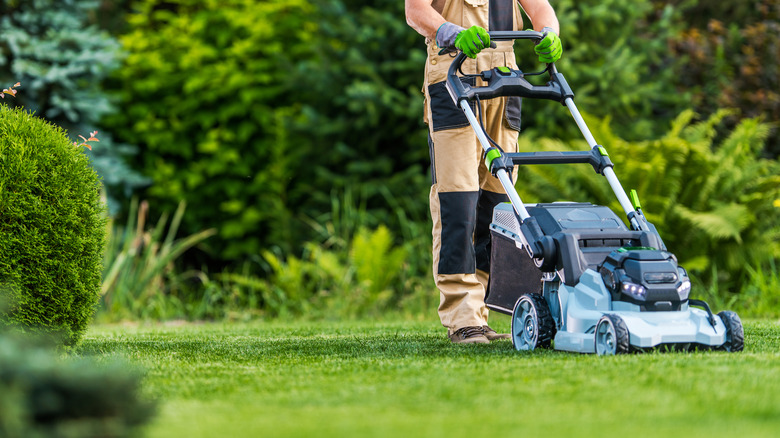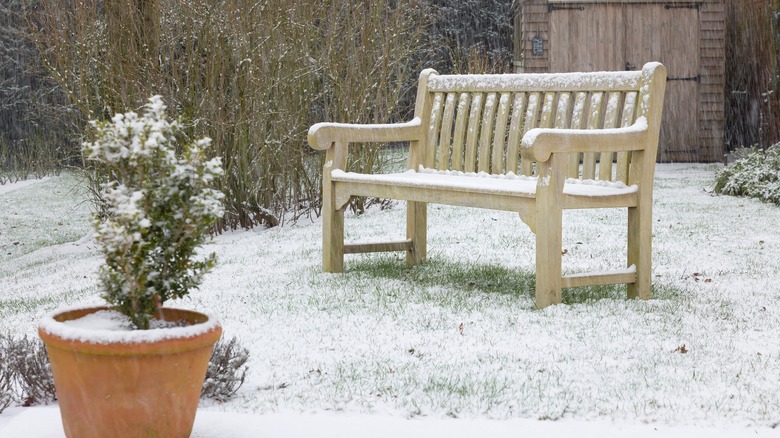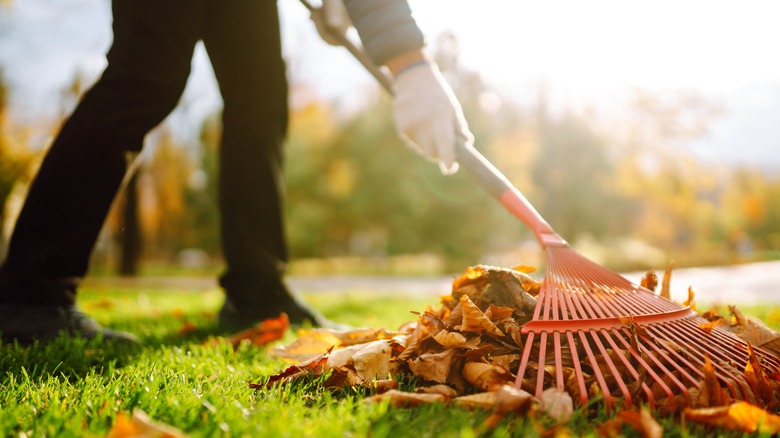Do You Need To Mow Your Lawn In Winter? An Expert Weighs In
Mowing your lawn is a key feature of homeownership. The average property incorporates at least some natural grass in the space surrounding the house itself, and this grass grows constantly and quickly during the summer. Mowing once a week is often standard practice during this time of the year, and Power Pro Equipment notes that many homeowners in the warmest parts of the country will want to mow on an even shorter schedule: Trimming the grass every five to six days for the best results! But the summer months come and go in a flash, and homeowners are left wondering whether they should take the mower out once the weather turns cold and the grass' intense growth rate halts for the year.
In an exclusive interview with House Digest, Chad Chapman, the owner of Brookfield Lawncare, outlines the finer details surrounding winter lawn maintenance. He notes that there are generalized guidelines that homeowners should typically follow for the best results, but hard and fast rules simply don't exist here. "If you are unsure, it's best to talk with a local lawn care expert who can advise you on the best course of action for your specific lawn," he offers.
Why you should leave your lawn alone
Generally speaking, mowing falls to the back burner during the coldest times of the year. "Mowing your lawn isn't usually necessary during the winter, and in fact, doing so can actually be damaging to the health of your lawn. It's best to avoid mowing when temperatures are low and soil is frozen," Chapman warns.
Winter is a time of stagnation for many plants, and grass is one of them. This is simply part of the growth cycle and allows plants to thrive in the following growing season. "In the winter, grass growth is greatly reduced and it goes into a dormant state. Mowing at this time can be harmful; you'd cut off these dormant blades, creating brown patches. Furthermore, mowing during the winter can leave your lawn uneven and more susceptible to damage from frost or snow," he adds. Because the grass isn't actively shooting up, you can leave the lawn in a damaged state when you mow it in the winter, creating an unnecessary vulnerability.
The exceptions to the rule
However, rules in the yard are rarely clear-cut. The truth is that some homeowners will still need to take steps throughout the winter months to keep their grass healthy and luscious. "In certain cases," Chapman says, "mowing in winter may be needed — for example, if you live somewhere with mild winters where grass still grows or if your lawn is prone to thatch buildup and needs to be mowed down. Otherwise, it's best to avoid doing so as much as possible."
"Also mowing your lawn may be needed if there is a large number of leaves that have fallen on it and are heavily covering your grass. Ideally, you'd either rake or blow the leaves off. But if that's not an option for you, then mowing is. This way, the leaves are removed and the grass won't be smothered," he notes. Care for your grass and the yard as a whole doesn't stop during the winter. In fact, it's likely that you'll need to mulch certain areas of the garden in preparation for these colder temperatures. Similarly, weeding during the colder months can help reduce the volume of invasive plants in your yard when the spring and summer months roll back around. Playing it safe and only mowing if necessary is often the best call. Sometimes this results in winter mowing, and other times it won't require this additional measure.


